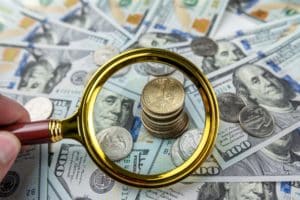
In anticipation of tomorrow’s FOMC we take a look at the latest news we find today on the US Fed.
Watcher.Guru with his dead-on timing tweeted:
JUST IN:
Dallas FED official says a recession is on the way.
— Watcher.Guru (@WatcherGuru) January 30, 2023
The tweet alludes to the fact that we have hard data about the fact that the recession has officially arrived in the United States of America and that as a result it is likely to reach the rest of the world soon.
However, one user questioned the veracity of the source, explaining how what is reported is only the commentary of a businessman and not a Dallas Fed official at the Texas Manufacturing Outlook Survey in the section devoted to the topic.
In the meantime, the comments were not long in coming, with one commenter pointing out that we were already in a recession when there was talk of a strong market, and now that a recession is being hailed is probably when the market is recovering.
Another user points to how easily the definition of recession changes.
In textbooks, a recession is proclaimed when for at least two consecutive quarters Gross Domestic Product (GDP) marks a negative value.
This assessment was disavowed by Federal Reserve Chairman Jerome Powell who felt it was too early to make this judgment despite the occurrence of conditions.
This is basically what the user of Musk‘s social network alluded to sarcastically in his comment.
Meanwhile, the US Fed Dallas index touched -8.4 points in January after -20 in December.
The news of the coming recession comes right on the heels of an important meeting.
Wednesday will see the first FOMC of the year in which Jerome Powell, chairman of the US Federal Reserve will announce the extent of the adjustment to interest rates.
The market has been pricing in a 24 basis point change with almost 90% probability, though some stoic analysts continue to advocate a 50 basis point hike, as unlikely as that may be.
The hike would bring rates 25 points away from the ceiling set for this year by the Fed itself, which, nonetheless, has said it will modulate its policies and interventions based on market response.
Richard Fisher, former Dallas Fed President believes they will opt for the hike already priced in by the market but Ethan Harris of Bank of America adds that much will depend on the labor market and how well it holds up.
The news of an already present recession certainly shifts the bar for US central bank policies.
The most important variable to take into account when implementing an aggressive policy, as opposed to an accommodative one, is the market reaction time.
On average, the effects of US Federal Reserve monetary policies occur in the six to nine months following the moves made.
Whether it will be true recession or not can be seen among citizens indicatively from next summer, a result that will be “sweetened” by the classic increase in consumption that characterizes the summer season.
At that point we will have a clear picture of the situation and Powell, from the top of the US Central Bank, will be able to correct the course of things, perhaps even reverting from tightening to quantitative easing.




















